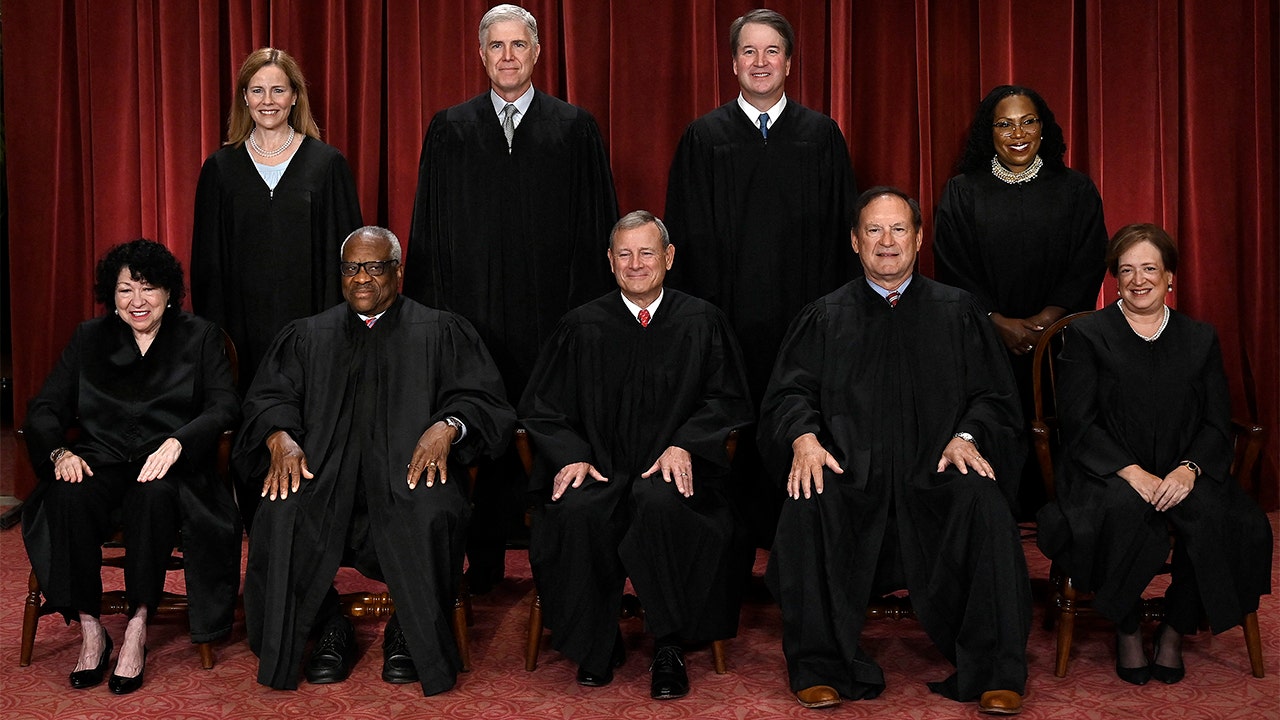Lawyers for former President Donald J. Trump and eight of his co-defendants in the Georgia election interference case asked an appeals court on Friday to take up their challenge of a judge’s ruling that allowed the prosecutor Fani T. Willis to stay on the case.
With their application to appeal, the defendants are once again pressing their argument that Ms. Willis, the Fulton County district attorney, created an untenable conflict of interest by having a romantic relationship with the special prosecutor she hired to manage the Trump case.
The presiding judge in the criminal case, Scott McAfee of Fulton County Superior Court, had already given the defendants permission to pursue their appeal after he ruled against the efforts to disqualify Ms. Willis.
But under Georgia law, the co-defendants must also secure the approval of the Georgia Court of Appeals before the matter can be heard by a panel of three appellate judges.
The filing on Friday seeks to convince the higher court it should consider their arguments that the criminal case should be dismissed, or that Ms. Willis and her office should be disqualified.
The appeals court has 45 days to decide whether to grant or deny the appeal application.
The effort to disqualify Ms. Willis led to multiple days of hearings that delved into salacious details of her personal life. Defense lawyers argued that she had engaged in “self-dealing” by taking vacations with the man she had hired to manage the case, Nathan J. Wade, and allowing him to pay for at least some of the trips.
In the end, Judge McAfee criticized Ms. Willis for a “tremendous lapse in judgment” in dating Mr. Wade. He also pointed to lingering questions about whether Ms. Willis and Mr. Wade “testified untruthfully,” stating that the hearings had left an “odor of mendacity” hanging over the matter.
But instead of finding an actual conflict of interest, as the defense lawyers had hoped, the judge found only an “appearance of impropriety” and ruled that Ms. Willis and her office could stay on the case if Mr. Wade stepped away from it. Mr. Wade resigned from his post a few hours after the judge’s order on March 15.
The defense lawyers, in their filing on Friday, argued that ridding the case of Mr. Wade was not enough. Ms. Willis, they argue, needs to go, too.
“The trial court was bound by existing case law to not only require Wade’s disqualification (which occurred) but also to require the disqualification of D.A. Willis and her entire office,” the lawyers said in the 51-page document. “The trial court’s failure to do so is plain legal error requiring reversal.”
The drama served to distract from criminal charges contained in the August indictment of Mr. Trump and 18 of his allies. The charging document described myriad efforts to overturn Mr. Trump’s 2020 election loss in Georgia, and four of the defendants have since taken plea deals.
The Georgia case is one of four criminal cases Mr. Trump is facing, and in each of them, his lawyers have engaged in delaying tactics as the November general election approaches. A Manhattan judge recently set an April 15 trial date for Mr. Trump’s criminal case involving charges that he falsified business records to hide a potential sex scandal. Trial dates have not been set for his two federal criminal cases, in Washington, D.C., and Florida.
Judge McAfee also recently ruled that a pretrial appeal can be sought by Harrison Floyd, a co-defendant in the case who formerly led a group called Black Voices for Trump. The judge had ruled against Mr. Floyd’s contention that prosecutors did not have the authority to pursue election-related charges against him because they did not first seek a referral from the state election board.
As in the disqualification appeal, Mr. Floyd must first secure the approval of the appellate court before the appeal can go forward.
It appears increasingly unlikely that the Georgia case will go to trial before the November election, although it is also unclear whether the appeal efforts will contribute to the delay. Judge McAfee has said that he will continue to address other pretrial motions in the case regardless of what the appeals court decides to do with regard to the disqualification effort.






